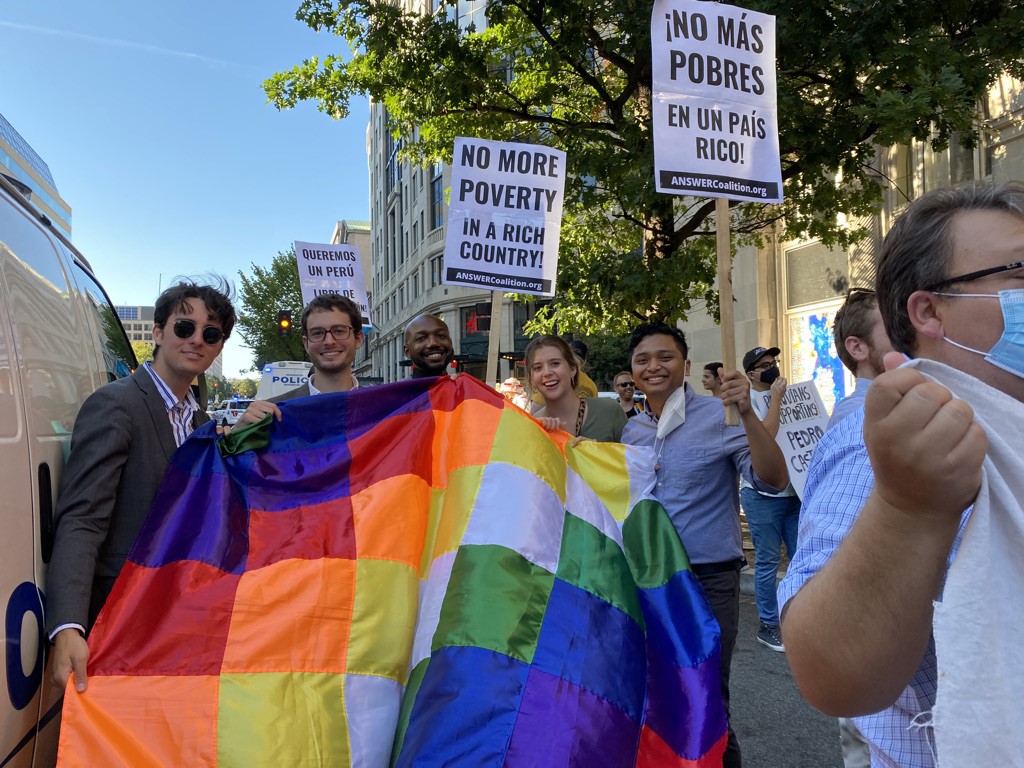Photo: Castillo supporters rally in Washington, D.C. Oversize pencils became a symbol of Castillo’s campaign, symbolizing both his working-class background as a rural teacher and his demand to rewrite the country’s dictatorship-era constitution.
In honor of his first visit to the United States, Peruvians and other supporters of the country’s movement for change rallied outside Pedro Castillo’s hotel in Washington, D.C., to greet the newly sworn-in president. The crowd kept their spirits high with Quena music (a Peruvian flute instrument) and Tondero dancers. Castillo’s presidency signifies a long-overdue shift in respect for the many Indigenous nations of Peru.
The event was organized by Perú Libre abroad and Peruanos en el Exterior. Perú Libre is the left-wing political party that ran Castillo for president.
The ANSWER Coalition attended to show that people in the United States oppose their government’s intervention in Peru and support the people’s struggle against imperialism and fascism. Keiko Fujimori, the daughter of the fascist dictator of the country in the 1990s, lost this year’s vote to Castillo and has attempted to overturn the election result and push Castillo out of office. Working people in Peru and the United States are fighting for many of the same things — we both struggle for adequate housing, free education, free healthcare and an end to discrimination.

President Castillo arrived in D.C. after attending the Community of Latin American and Caribbean States (CELAC) Conference in Mexico City. CELAC was founded in 2010 to unite Latin American and Caribbean nations outside the Organization of American States. The OAS, often called “the U.S. Ministry of Colonies” enforces U.S. domination at the expense of Latin American sovereignty.
Overcoming political differences, the 31 participating countries in this year’s CELAC summit approved a 44-point plan to build solidarity among member states. Among the demands, CELAC members rallied behind COVID-19 vaccination collaboration, an end to the U.S. blockade of Cuba and Venezuela, and building relations with China.
President Castillo will speak on Tuesday at the United Nations where he is expected to outline the agenda of his government, and advocate for solidarity among the Global South on issues like COVID-19 vaccines, the climate crisis and trade.





